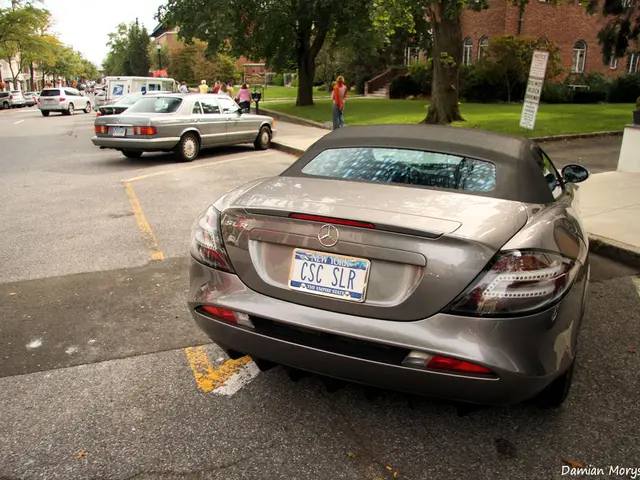Rachel Reeves reveals significant modification to fiscal regulations aiming to release billions of British pounds
The UK's Autumn Budget 2025, scheduled for October 30, is shaping up to be a defining moment in the country's financial landscape. With the government facing a large fiscal shortfall, a number of tax increases are being considered to help balance the books.
Jeremy Hunt, the shadow chancellor, has criticised the potential increase in borrowing, warning that it could lead to higher interest rates for longer, potentially punishing families with mortgages. Meanwhile, Rachel Reeves, the UK's chancellor, is set to change the fiscal rules in the upcoming Budget.
One of the key possibilities for the Autumn Budget is the extension of the freeze on income tax thresholds. If confirmed, this could raise up to £7 billion per year by increasing fiscal drag, a silent tax collector that results in taxpayers paying a larger annual bill regardless of tax rates.
Other proposals include the introduction of a wealth tax on assets above £0.5 million, with rates between 1% and 2%. However, challenges exist around implementation and potential negative behavioural effects. There are also plans to increase taxation on pensions and consider increases in gambling taxes or bank levies as practical revenue-raising measures.
Prime Minister Keir Starmer has warned that the Budget will be "painful" and involve "tough decisions", leading to speculation about tax hikes. Areas that could be targeted for tax rises include pensions, inheritance tax (IHT), and capital gains tax (CGT).
Rachel Reeves is reportedly looking to raise £40 billion through a combination of spending cuts and tax rises. The extra money is expected to be used over the course of Labour's term in power, not just for projects in the upcoming Budget.
The change in fiscal rules will free up billions of pounds for infrastructure spending, with up to £50bn of extra borrowing expected for major building projects like roads and railways. However, the Budget next week is still expected to result in some cuts to public services and tax rises.
The personal allowance and income tax thresholds have been frozen until 2028, leading to taxpayers being dragged into higher tax bands as their salary increases with inflation. Labour has previously promised not to raise income tax, employee National Insurance contributions, or VAT, but has confirmed that it will add VAT to private school fees from January 1, 2025, to help fund more teachers in the state sector, potentially increasing costs by up to 20%.
The Autumn Budget 2025 could potentially see increases in several taxes, driven by the government's need to address a large fiscal shortfall and adhere to fiscal rules. As the date approaches, the public and businesses alike are bracing for what could be a significant shift in the UK's financial landscape.
[1] Office for Budget Responsibility (OBR) - Fiscal Sustainability Report 2023 [2] Institute for Fiscal Studies (IFS) - Wealth Taxes: What do we know and what are the challenges? [3] Resolution Foundation - The UK's Fiscal Choices 2025: A Budget Preview
- In the upcoming Autumn Budget 2025, the government, faced with a large fiscal shortfall, might consider increasing taxes on pensions and properties, as well as implementing a wealth tax on assets above £0.5 million, to help balance the books.
- Financial analysts suggest that the Autumn Budget 2025 could lead to a shift in the UK's financial landscape, with possible implications for families with mortgages and investments, due to the potential increases in interest rates, taxes on pensions, and wealth tax.




